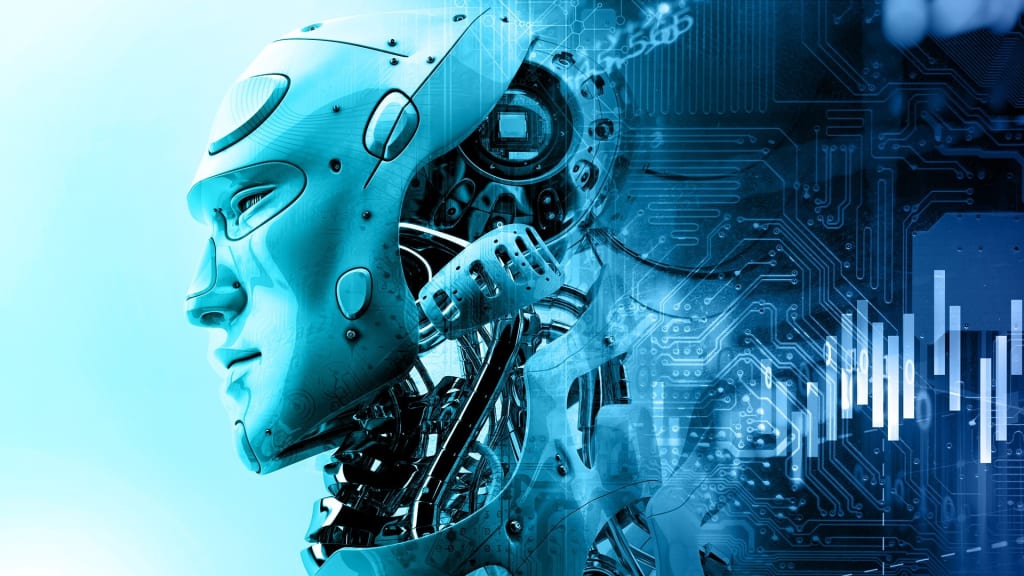
Artificial Intelligence, commonly known as AI, is a fascinating field that has gained significant attention in recent years. It refers to the development of intelligent machines that can perform tasks that typically require human intelligence. These tasks include speech recognition, problem-solving, learning, and decision-making. AI has become an integral part of our lives, transforming various industries and revolutionizing the way we live and work.
What is Artificial Intelligence?
Artificial Intelligence is the simulation of human intelligence in machines that are programmed to think and learn like humans. It involves the creation of computer systems that can perform tasks that would usually require human intelligence. The goal of AI is to develop machines that can replicate human cognitive abilities such as understanding natural language, recognizing patterns, and making logical decisions.
The History and Development of AI
The concept of AI dates back to ancient times, with mythologies and stories featuring artificial beings capable of human-like actions. However, the modern era of AI began in the 1950s when computer scientists began to explore the idea of creating machines that could mimic human intelligence. The term "artificial intelligence" was coined in 1956 by John McCarthy, who is often referred to as the father of AI.
Over the years, AI has evolved significantly, thanks to advancements in computing power and the availability of vast amounts of data. Early AI systems relied on rule-based programming, where a set of predefined rules guided the machine's behavior. However, with the advent of machine learning and deep learning, AI systems can now learn from data and improve their performance over time.
Applications of AI in Various Industries
AI has found applications in a wide range of industries, revolutionizing the way we live and work. In healthcare, AI is being used to diagnose diseases, analyze medical images, and develop personalized treatment plans. In the financial sector, AI is used for fraud detection, risk assessment, and algorithmic trading. AI-powered virtual assistants like Siri and Alexa have transformed the way we interact with our devices, making our lives more convenient.
The Rise of Huawei and its Contributions to AI
Huawei, a Chinese multinational technology company, has emerged as a key player in the field of AI. The company has heavily invested in AI research and development, aiming to become a global leader in the field. Huawei's AI capabilities are showcased in their smartphones, which feature advanced AI-powered cameras and intelligent voice assistants. Additionally, Huawei has also made significant contributions to the development of 5G technology, which is crucial for the advancement of AI applications.
Exploring Humanoid Robots and their Advancements
Humanoid robots are machines designed to resemble and interact with humans. These robots are equipped with AI capabilities that enable them to perform various tasks, ranging from simple household chores to complex surgeries. Humanoid robots can recognize and respond to human emotions, making them ideal companions for the elderly and individuals with disabilities. Researchers are continually pushing the boundaries of humanoid robot technology, with advancements in areas such as natural language processing, computer vision, and motor control.
How AI is Transforming Industries and Everyday Life
AI has had a transformative impact on various industries, enhancing productivity, efficiency, and innovation. In manufacturing, AI-powered robots have automated repetitive tasks, leading to increased production rates and improved product quality. In transportation, AI is being used for autonomous vehicles, optimizing traffic flow, and improving road safety. AI-powered recommendation systems are transforming the retail and entertainment sectors, providing personalized experiences and improving customer satisfaction.
In our everyday lives, AI has become ubiquitous. From virtual assistants that help us manage our schedules to personalized recommendations on streaming platforms, AI has integrated seamlessly into our daily routines. AI-powered chatbots are improving customer service, while smart home devices are making our homes more intelligent and convenient. The impact of AI is evident in every aspect of our lives, making it an essential technology for the future.
The Ethical Implications of AI
While AI brings numerous benefits, it also raises ethical concerns and challenges. One of the key concerns is the potential loss of jobs as AI replaces human labor in various industries. The ethical use of AI in decision-making, such as in autonomous vehicles or criminal justice systems, raises questions about accountability and transparency. Additionally, AI-powered surveillance systems raise concerns about privacy and data security. It is crucial for society to navigate these ethical implications and ensure that AI is developed and deployed responsibly.
The Future of AI and its Potential Impact on Society
The future of AI is filled with immense possibilities and potential. As technology continues to advance, AI is expected to become more sophisticated, capable of performing complex tasks and exhibiting human-like intelligence. The integration of AI with other emerging technologies, such as robotics, Internet of Things (IoT), and blockchain, will further revolutionize industries and society as a whole. However, careful consideration must be given to ensure that AI is developed with a focus on ethical guidelines and human well-being.
Conclusion: The Continued Growth and Importance of AI
Artificial Intelligence has come a long way since its inception, and its impact on society is only expected to grow in the coming years. As we explore the advancements in AI made by companies like Huawei and witness the development of humanoid robots, it is evident that AI has the potential to transform industries, improve our daily lives, and contribute to the betterment of society. However, it is crucial to address the ethical implications of AI and ensure that its development is guided by responsible practices. With careful consideration and ongoing research, AI can be harnessed to create a future that benefits all of humanity.






Comments (1)
this is so amazing go to my post and read the one I have prepared for you